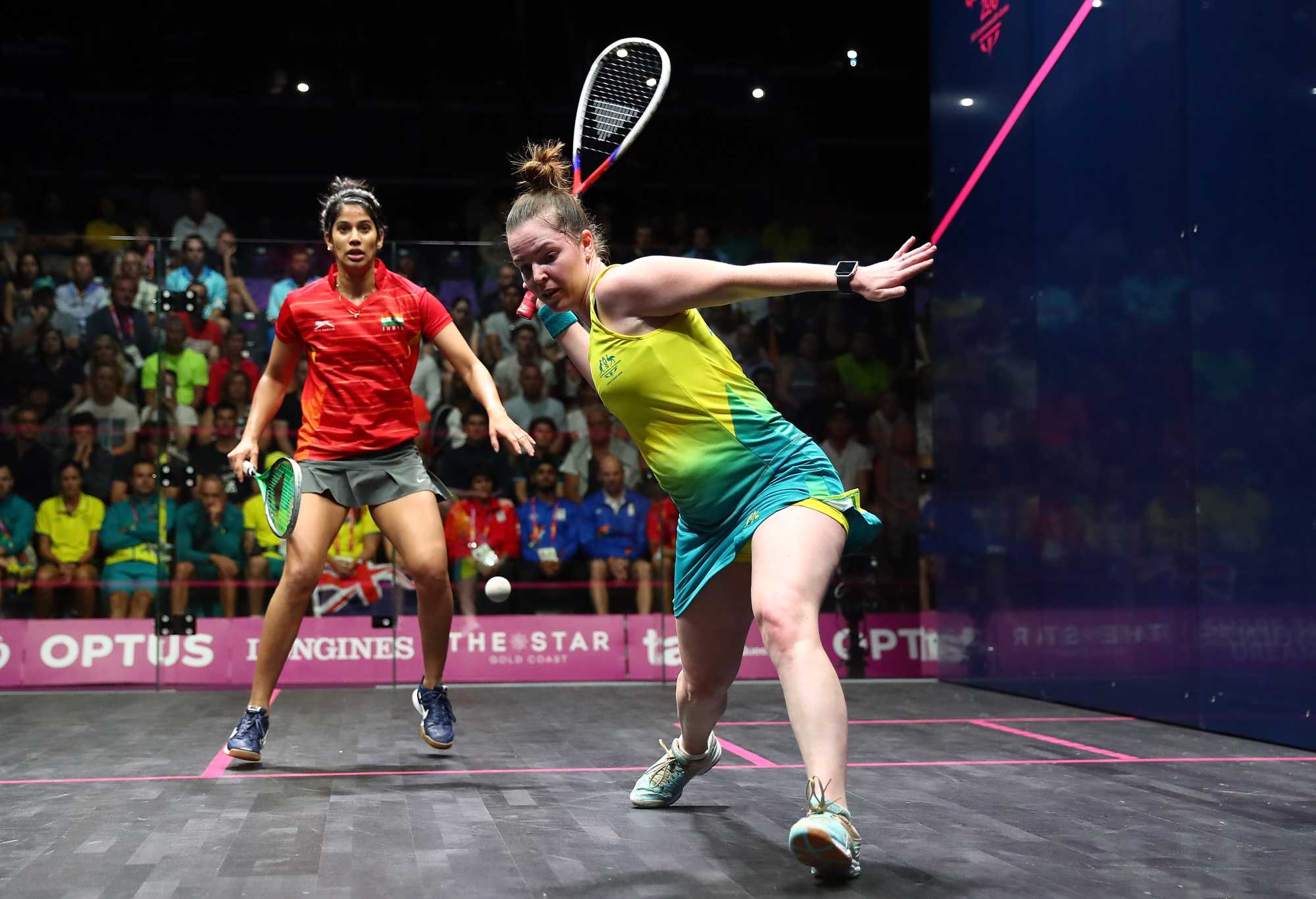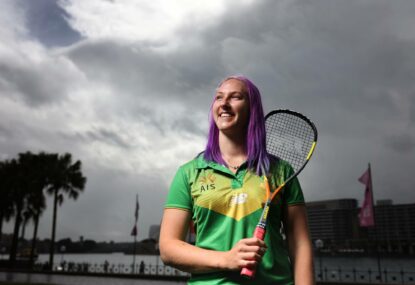After years of fading into the sporting background, squash is set for a revival in Australia after the sport finally received long-overdue Olympic status.
The International Olympic Committee’s decision on Tuesday to include squash as one of five new sports for the Los Angeles Games in 2028 gives the sport a turbo boost worldwide but also in Australia where it was once one of the most popular pastimes in the nation.
With the Australian Open reinstated on the Professional World Tour next March, Squash Australia is looking at staging the tournament at an iconic Sydney landmark with an announcement expected in the next few weeks.
Due to its unique set-up where glass courts can be set up pretty much anywhere, tournaments have been held at world-famous landmarks in recent years, such as the Great Pyramid of Giza, New York’s Grand Central Station and London’s Canary Wharf.
There had been a push prior to the Sydney 2000 Games for squash to be get the green light and after decades of trying to gain admission while sports with much less of a tradition like breakdancing, rock climbing and skateboarding were given the nod, squash can now boast Olympic status.

Tamika Saxby competes against Joshna Chinappa of India in squash at the the Gold Coast 2018 Commonwealth Games. (Photo by Chris Hyde/Getty Images)
Squash Australia chief executive Robert Donaghue told The Roar it was a “a mix of excitement and relief” when success was achieved with the IOC at long last.
“The sport has been in the position before when it’s been one of the last couple of sports to be considered and then has missed out,” he said.
“There was still some level of skepticism that it was going to happen this time but the announcement brought a big sigh of relief and then created huge excitement both here in Australia and internationally.
“As a traditional sport and one that suits the Olympics so well it has been frustrating and disappointing that we haven’t been able to show the world and the Olympic movement and the world how great a sport it can be.
“Now we’ve got that opportunity, we don’t want to be one and done. We want to be in the program into the future.”
That means being part of the Brisbane 2032 Olympics, which gives young Australian hopefuls an incentive to dedicate themselves to squash in a competitive market for the best young athletes.
The Australian Open has not been part of the world tour for more than a decade but Donaghue said having their pinnacle event back on the global circuit was significant.
“We’re just working on the final pieces on locking in the venue but it will be a really exciting way for us to showcase the sport,” he said.
“Like tennis we want to have a festival of squash with the Australian Open as the centrepiece of that to celebrate the game and show the broader public what the game feels like in a broader sense.
“The glass court gives you a unique opportunity. You can place it in an iconic location from a broadcast point of view, you can see the host city as part of the sporting event so it can market itself.
“The money shots in front of the pyramids, there’s not many sports that can do that.”
Squash has been a Commonwealth Games sport since Kuala Lumpur in 1998, with the associated funding helping to keep the sport afloat, but it still gets a small slice of the government coffers so now being an Olympic sport is a major boost.
While larger and much wealthier participation sports like soccer cry out for more funding, there is a school of thought that governments should concentrate on secondary sports which don’t have massive sponsorship deals or revenue coming in from grassroots funding.
“Being in the Olympics means there’s going to be opportunities for us through sponsorship, increased participation and the government so the announcement is a huge shot in the arm to the sport and the resources available to us,” Donaghue said.
“The bigger sports have got far more commercial reach and broadcast reach but I think the athletes in all sports are the same – they’re in it for love than money.
“Particularly in these next 10 years there is a conversation to be had about the investment in sport at all levels but for a sport like us, that investment from government is really important.”
Part of that long-term vision for the future revolves around the Squash Stars junior program targeted at getting kids into the sport even before they’re at a primary school age.
As for medal hopes at the LA Games, it’s not going to be easy given that women’s world No.65 Jessica Turnbull, Sarah Cardwell (80) and Alex Haydon (87) and men’s world No.98 Joseph White are the only Australians inside the top 100 rankings.
Melbourne hosted the World Junior Championships in August and the top male and female Australian players finished in the top 20, which was the best result for 20 years, and Donaghue said Turnbull, Cardwell, Haydon and White, along with Nick Calvert and Rex Hedrick, were making inroads on the world tour.
“We’ve got a good young crop of talent and that bodes well for the future,” he said.
Like Australian tennis, the glory days of seemingly endless champions from half a century ago faded as more and more countries took up the sport.
In squash’s generation, Australians who dominated on the world stage like Heather McKay and Geoff Hunt were household names.
“Your history is always important. Heather is arguably one of Australia’s best ever athletes not just as a squash player. To have them in your past and be able to refer to them and that golden generation is great but you want to write your own history moving forward,” Donaghue said.
“The new history that wasn’t available to them is that we’re now an Olympic sport and so the players have that real opportunity to write their own history here in Australia to compete for a medal from 2028 and beyond.”






























































































